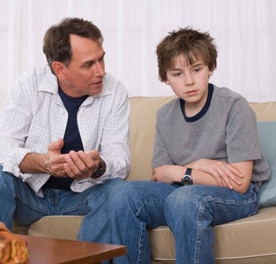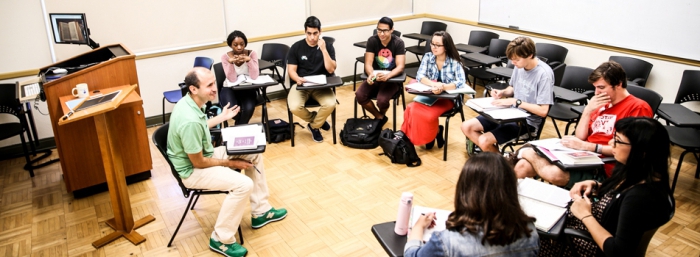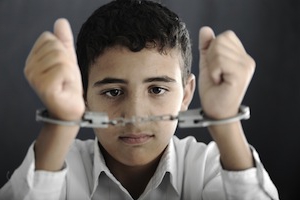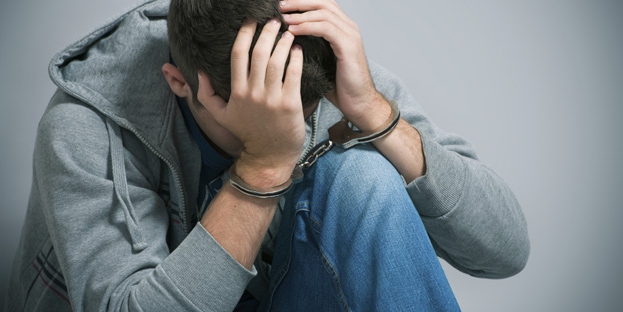Prevention of crimes among children committed by or above them is a priority task of the social direction of state policy. It includes educational, legal, organizational and other measures of influence, thanks to which the circumstances and conditions leading to the commission of offenses are identified and eliminated. The main cause of crimes committed by children is their lack of awareness of the seriousness of their actions. And the conditions for the instigation of them by minors and above them are most often the dysfunctional environment, neglect and homelessness.

Reasons for the formation of juvenile delinquency
In order to understand what a crime prevention and crime prevention plan should be, you should understand what are the causes of juvenile delinquency and try to eliminate them. These conditions include:
- The negative influence of the family, significant flaws in the upbringing, the minimum amount of money that does not allow to ensure the basic needs of the child.
- The negative influence of the environment from both adults and peers. Includes the penetration into the minds of minors through the media, personal everyday contacts of the wrong standards of behavior (cruelty, licentiousness, etc.).
- Lack of child employment.
As well as on the level of child crime affect: homelessness, neglect, low level educational institutions lack of cultural events, organizations involved in children's leisure and employment.

Child crime prevention methods
Prevention of juvenile delinquency and crime includes early preventive measures aimed at shaping the identity of the child and preventing his transition to the path of the offender in advance, as well as preventing relapse.
To carry out these preventive measures, public-state, educational, cultural and sports institutions are involved. A huge role is played by the timely work carried out with the parents of the teenager, the involvement of psychologists, social educators.
Early prevention is a higher priority assigned to the relevant authorities, as it allows you to identify and eliminate antisocial changes in the personality of the child that have not yet become sustainable, which means that in the future there is a greater likelihood that the crime will be prevented, and harm will be avoided , causing loss and applying strict coercive measures against a minor.
Early Childhood Crime Prevention
Crime prevention measures applied in the early stages are:
- identification of dysfunctional upbringing and poor living conditions of the child, the formation of values and attitudes of a minor even before the moment that they developed;
- identification and elimination of sources of negative effects on adolescents that can contribute to an asocial way of thinking and the further commission of offenses by the child;
- corrective and restraining effect on a minor with socially dangerous behavior.
Methods of crime prevention at this stage include:
- forecasting, which is based on a change in the personality characteristics of child offenders and the conditions under which they violate the law;
- analysis of statistical data, which allows to determine a number of common signs indicating abnormalities in the formation of the identity of minors.
Prevention of recidivism committed by a child
If a child has previously committed an offense and is registered with the juvenile authorities, then special preventive measures can and should be applied to him that prevent relapse.
This level of preventive measures includes:
- correction and re-education of a minor who has previously committed a violation of the law;
- elimination of sources of negative influence on the adolescent-offender.
Both early prevention and prevention of relapse are carried out using various methods and techniques, depending on the situation. For example, crime prevention at school, which is of a general nature, may consist in conducting special open lessons with psychologists invited to the conversation, employees of children's correctional institutions, and investigators for minors.

The legislation of the Russian Federation in the field of prevention of crimes among minors
In the Russian Federation, the prevention of juvenile delinquency is regulated at the legislative level, in accordance with the Constitution and international law, as well as Federal Law-120 “On the Basics of the System for the Prevention of Neglect and Juvenile Delinquency” with the latest amendments and additions dated December 31, 2014.
According to these legislative acts, in Russia certain competent authorities carry out preventive neglect, homelessness and commission of crimes among minors activities, which are primarily aimed at protecting the legitimate rights and interests of children in socially dangerous situations.
In this case, a child is considered to be neglected if there is no control over his behavior as a result of inadequate upbringing, maintenance and education by parents or legal representatives. Homeless is considered a minor who does not have a place of stay or place of residence. And a socially dangerous situation means an environment that implies a threat to the life or health of a child or does not meet the requirements for its maintenance, upbringing, education.
General prevention of crimes and child neglect / homelessness consists in the implementation of social, pedagogical, legal measures that contribute to the overall reduction in the number of juvenile delinquency and their neglect / homelessness. Such methods, measures identify the relevant causes and conditions and eliminate them.
Special institutions can also carry out individual prevention of crimes and neglect / homelessness of children, which consists in carrying out work aimed at the timely identification of specific minors in a socially dangerous situation, at preventing such children from committing offenses or at their rehabilitation. Individual prophylaxis with specific persons can be carried out only with the permission of the head of the body of the system for the prevention of neglect and juvenile delinquency.

Institutions and bodies of the juvenile delinquency prevention system
Prevention of juvenile crime in the Russian Federation is carried out by the following organizations:
- Commission on the affairs of minors and the protection of their rights;
- bodies for managing social protection of the population;
- federal body state. authorities, authorities of the regions of the Russian Federation and municipalities that carry out state regulation in the field of education;
- guardianship authorities;
- institutions of the penal system (colonies, pre-trial detention centers, etc.);
- ATS;
- bodies controlling the circulation of narcotic and psychotropic substances;
- youth affairs bodies;
- health authorities;
- employment services.
Separate institutions can be created within each of the listed organizations, which should perform certain functions for the prevention of juvenile delinquency and their neglect. In addition to the ways and methods of preventing child crime established by the legislation of the Russian Federation, these organizations are separately developing their own crime prevention program, and a plan is being established.
Activities for the prevention of juvenile delinquency and the timing of individual prevention
The main objectives of activities related to the prevention of crime among children are:
- preventing juvenile delinquency, identifying the causes and circumstances that contribute to this;
- protection of the rights and interests of the child;
- social and pedagogical rehabilitation of minors who are in a socially dangerous situation;
- detection and suppression of situations when children can be involved in crimes.
Crime prevention is based on the principles of a humane attitude to children, democracy and family support, as well as on an individual approach to each minor with confidentiality of the information received. When working with minors, they are explained their rights and the possibility of protecting their own interests.
Individual prevention of juvenile crime, according to Art. 7 FZ-120, the period that is necessary to provide social or any other assistance to children may last until minors reach 18 years of age or until the causes and circumstances that contribute to offenses are eliminated.
Individual prophylaxis subjects
Minors who are subject to individual crime prevention include:
- homeless and neglected;
- Begging or vagrancy
- located in social. rehabilitation centers, social. shelters, special educational centers;
- consuming psychotropic or narcotic, intoxicating substances, alcohol;
- previously committed offenses for which they were brought to justice;
- previously committed offenses but not liable for them due to age;
- exempted from criminal liability in connection with an amnesty or a change in situation;
- accused or suspected of committing criminal offenses;
- serving sentences in educational colonies;
- those in respect of whom a deferral of execution of a sentence or serving a sentence has been established;
- released from special educational institutions of a closed type or from places of the penitentiary system, in cases where, while in them, they violated the regime or committed unlawful acts. And also in situations when, after being released from them, minors are in a socially dangerous situation or need rehabilitation, help.
Prevention can be carried out both among minors belonging to the above categories, and among their parents or legal representatives, if they improperly perform or do not perform at all their duties in raising, maintaining and educating their children. And also in cases where adults adversely affect or mistreat the behavior of minors.

The grounds for individual prevention
The conditions under which individual juvenile crime prevention is carried out are the circumstances listed in the previous chapter, if any:
- in the application for assistance on issues that fall within the competence of bodies involved in the prevention of juvenile delinquency and neglect from the child or his parents (legal representatives);
- in a resolution of the juvenile commission, investigator, prosecutor, head of the police department or body of inquiry;
- in a sentence, ruling or ruling of a court;
- in the documents that are the basis for placing the child in institutions of the system for the prevention of juvenile delinquency and their neglect;
- in the conclusion on the fact of the audit on the basis of complaints or statements, which is approved by the head of the body for the prevention of juvenile delinquency and their neglect.
Rights of entities in institutions for the prevention of crime and neglect
Minors who are in institutions in which the prevention of crimes and offenses are carried out have the right to:
- notification of parents or legal representatives about the placement of children in these organizations. In this case, a notice of this fact is sent at the place of residence or stay of adults, if known, within 12 hours from the moment the child enters the institution. If there is no information about the place of sending the message, then the notification is sent within 3 days to guardianship authority at the last place of residence of the minor;
- obtaining information about the reasons and goals of being in the bodies of the prevention system, about your rights and obligations, information about the internal regulations of the respective institution;
- appeal against decisions of employees of the organizations in question;
- worthy, non-degrading treatment;
- telephone calls to relatives, negotiations, meetings with them without limitation in quantity;
- receiving transfers, parcels, letters without limitation in quantity;
- free food, clothes, shoes and other personal items that are necessary to preserve the health and life of children;
- free legal assistance.
Victimological prevention
However, as minors can commit crimes and offenses, many of them themselves become victims of atrocities. In this regard, the competent authorities have developed special preventive measures to prevent children from falling into such situations. One of the directions in this area is victimological prevention.
Victimological crime prevention is a specific work of social institutions aimed at identifying and eliminating those conditions, facts or situations that form victim behavior. It also aims to identify risk groups and specific people with a high degree of victimization and to develop or improve existing means of protecting people from crime.
Victim behavior is a person’s predisposition to fall into circumstances that are associated with a danger to his health or life, and caused by his behavior, actions, actions.
Victimological crime prevention is divided into general and individual. General victimological prophylaxis includes:
- improving the legal literacy of people, informing children about their rights and obligations;
- issuing and distributing special warning leaflets containing information on how to avoid or prevent an attack, stop drinking alcohol or drugs, etc .;
- informing minors and adults about the increase in the criminality of a settlement, district;
- the creation of special support centers for minors, whose activities are aimed at comprehensive assistance to children (legal, material, psychological);
- constant monitoring by law enforcement agencies over potential places for committing crimes (desert territories, basements, etc.);
- monitoring people suspiciously in crowded places.
Individual victimological prophylaxis consists of the following measures:
- identification of minors with increased victimization;
- correcting victimization in individual children by neutralizing negative external factors, studying and correcting the internal characteristics of the child, and applying educational and preventive measures to the minor.
From the above it can be concluded that the prevention and prevention of crimes committed among minors and children directly in the Russian Federation is carried out by certain authorities and sociological institutes. Their methods and methods are fixed by law, while they are constantly being adjusted depending on the general situation in the country and in accordance with special cases.









